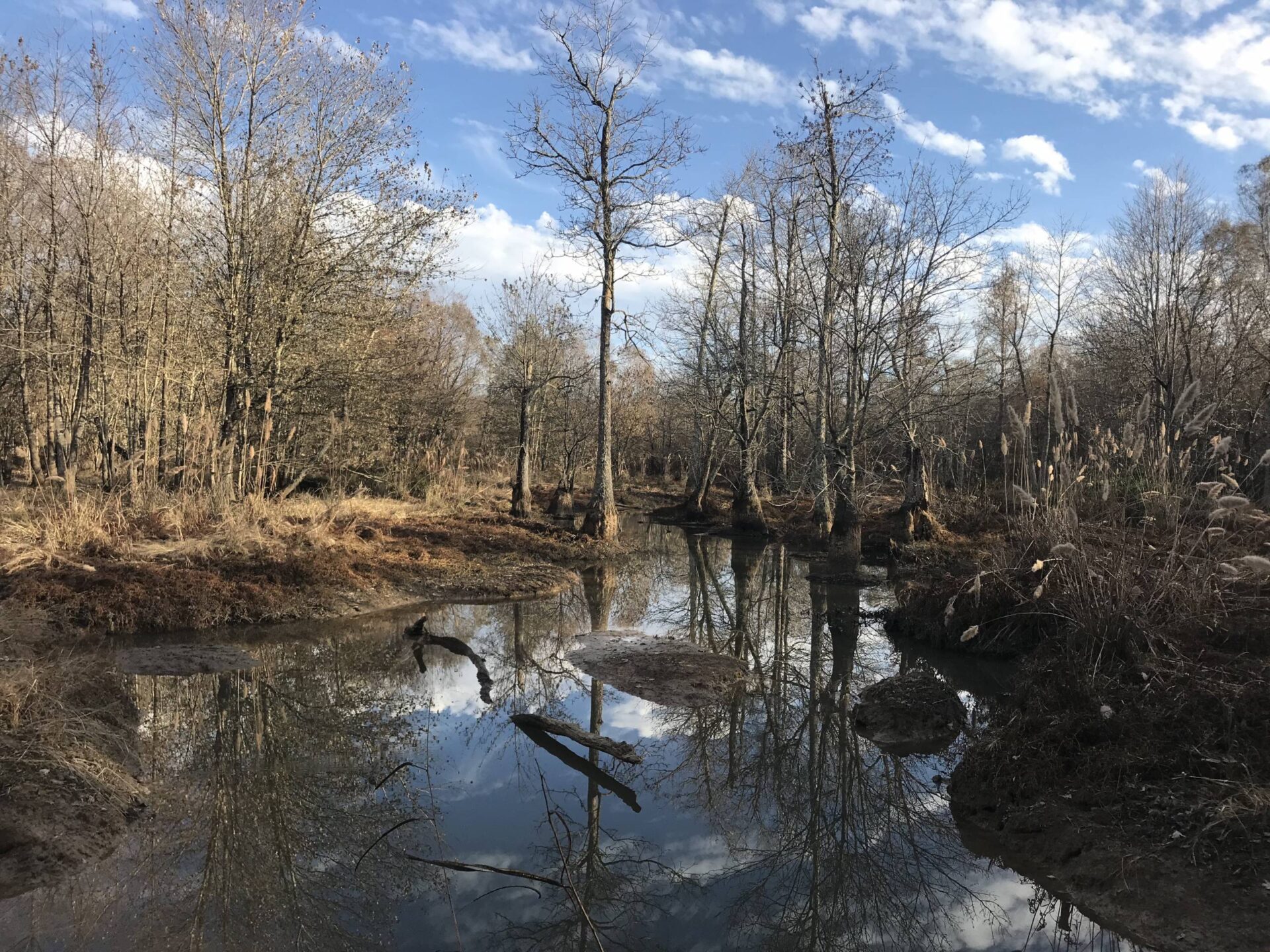By Allen Brewer
Journalism Student
agbrewer@go.olemiss.edu

Herald Allen still remembers what he saw five months ago.
He was inside his home when he heard his dog began barking. He didn’t think much of it at first; it was probably just a squirrel. He had just moved from San Bernardino, California to rural Lafayette County, Mississippi.
His dog wouldn’t stop barking. Allen decided to look outside to see what was going on. As he looked across the yard, he spotted something long and dark on the edge of his property.
As he approached it, he noticed the creature was about two-feet long, black and scaley. As he got closer, it dashed away into the forested area surrounding Allen’s property.
“I thought to myself, they sure have large lizards in Mississippi,” Allen said.
Allen realized it must have been a young alligator. He called the Mississippi Department of Wildlife, Fisheries, and Parks (MDWFP) to report the sighting, and he was told that there had been other reports in his area.
Close Encounters
Allen’s property is located near a stream that flows into the Yocona River. Over the years, other locals have seen alligators in and around the river and wetlands. The MDWFP, however, says that this is generally not the habitat of the American alligator.
https://drive.google.com/open?id=1mgz68eWVpS8r5I9Gvs0tuzc5fZJzHGah&usp=sharing
The most recent data from the MDWFP website says there are no official records of alligators in 14 of Mississippi’s northeastern counties, which include Lafayette, Yalobusha and Pontotoc.
According to Ricky Flynt, coordinator for the Mississippi Alligator Program, gator sightings in the Northeast are uncommon but not unheard of. He has received reports of alligators living in all 82 Mississippi counties.
“The southern two-thirds of the state is the traditional range of the alligator,” Flynt said. “The northeast is definitely where they are less likely to be found.”
Surviving the Cold
Colder weather is one reason gators are not often seen in the northeast portion of the state.
According to Dr. Edmund Keiser, a retired University of Mississippi biology professor and former researcher at the University Field Station, alligators can survive in colder climates.
Keiser said he witnessed a few alligators in areas around Enid Lake, Sardis Lake and the Springdale Wildlife Management Area, all of which are located, at least in part, in Lafayette County. Kaiser said he has taken biology students to Springdale to see alligators.
“You have to be very quiet and move very slowly to see them, and you should also have binoculars as you cannot get very close (during daylight hours).”
Keiser compared northern alligator populations to those of another exotic reptile species, the Burmese python. While pythons are native to tropical climates, they have adapted to southern Florida and moved to states like Mississippi.
Keiser said that both alligators and pythons can survive cold temperatures by submerging their bodies underwater. Flynt also said that alligators can survive under frozen water by becoming dormant on the bottom of rivers. Once temperatures warm up, within 24 hours, the alligators can recover and become active once more, according to Flynt.

Alligator Movements
During winter, gators go into deep hibernation. In the spring, the gators wake and began looking for mates. From April – June, younger alligators are pushed outside their normal habitats by dominant males.

“Those juveniles will move to new areas and, over a long period of time, those alligators could accumulate,” Flynt said.
Flynt has tagged more than 700 alligators in the state and his data shows most male gators only travel about 5 – 6 square miles during the breeding season, but some gators can travel further.
Humans may also be responsible for pushing alligators into new territories.
When gators came off the endangered species list in the ‘80s, Mississippi state wildlife officials reduced the number of strategic relocations of the reptiles. Whether the gators migrated or were transplanted by humans, all that is certain is that locals believe they have seen gators in Lafayette County.
“There are alligators in North Mississippi and several of them,” Tommy Ray Watson, a Lafayette County resident said about seeing a 12-foot gator on his property 20 years ago. “I have seen them and have heard of sightings from my friends. I know they are there without a doubt.”
